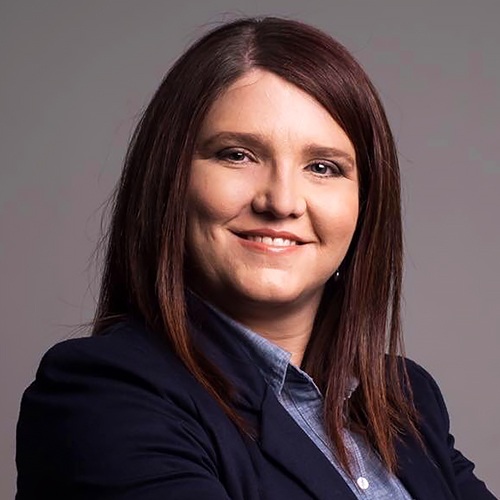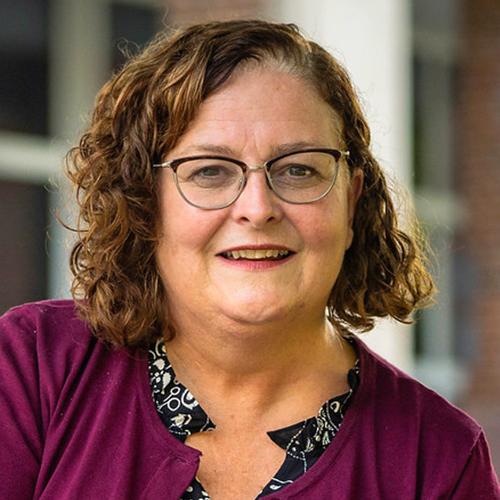 Neonatology Online Course(s) & Continuing Education
Neonatology Online Course(s) & Continuing Education
Access the latest clinical skills and research for Neonatology for Maternal Health professional training. These Neonatology online courses provide practice-changing skills and valuable perspectives from leading global experts. This Neonatology education has been accredited for a variety of CEUs / CERPs and can be accessed on-demand, at your own pace.


Ying-Tang Ng is an Assistant Professor in the Department of Pharmacy Practice at Husson University School of Pharmacy in Bangor, Maine. She received her Doctor of Pharmacy degree from Wingate University School of Pharmacy in Wingate, NC. Post graduation, Dr. Ng completed her pharmacy practice residency at Wolfson Children’s Hospital in Jacksonville, FL and pediatric specialty residency at Texas Tech University School of Pharmacy in Amarillo, TX. Prior to joining Husson University, Dr. Ng practiced at New Hanover Regional Medical Center in Wilmington, NC as a clinical pharmacist and at Children’s Hospital of Michigan (CHM) in Detroit, MI as a clinical pharmacy specialist in the Neonatal Intensive Care Unit (NICU). At CHM, Dr. Ng also served as the Post-Graduate-Year (PGY-1) residency coordinator for 1st-year residents. Dr. Ng is a Board Certified Pediatric Pharmacotherapy Specialist. She is currently an active member of the American College of Clinical Pharmacy (ACCP) and the Pediatric Pharmacy Advocacy Group (PPAG).
Extracorporeal Membrane Oxygenation (ECMO) provides support to neonates with cardiac and/or respiratory failure despite all other conventional management therapies. Neonates on ECMO are management on a variety of medication therapy including anticoagulation and antimicrobial therapy. Due to the nature of the ECMO circuit, pharmacokinetic properties of medications change which can make pharmacotherapy management challenging. Understanding these difference and changes will help maximize medication therapy in this vulnerable population.


Dominic Wilkinson is Director of Medical Ethics and Professor of Medical Ethics at the Oxford Uehiro Centre for Practical Ethics, University of Oxford. He is a consultant in newborn intensive care at the John Radcliffe Hospital, Oxford. He also holds a health practitioner research fellowship with the Wellcome Trust and is a senior research fellow at Jesus College Oxford.
Dominic has published more than 130 academic articles relating to ethical issues in intensive care for adults, children and newborn infants. He is co-author (with Julian Savulescu) of ‘Ethics, Conflict and Medical treatment for children, from disagreement to dissensus’ (Elsevier, 2018). He is also the author of 'Death or Disability? The 'Carmentis Machine' and decision-making for critically ill children' (Oxford University Press 2013) ("the best book of the decade in bioethics... this is a book that must be read by everybody who is seriously interested in the bioethical issues that arise in neonatal intensive care or, more generally, in decision making for children with chronic, debilitating or life-threatening conditions." (John Lantos, Notre Dame Philosophical Reviews). He was Editor and Associate Editor of the Journal of Medical Ethics from 2011-2018.
Neonatal intensive care frequently gives rise to challenging ethical questions, particularly when there are decisions to be made about starting or stopping potentially life-sustaining medical treatment. In this talk, I will cover three common and important questions relating to neonatal end of life care. When is it ethical to allow a newborn infant to die? How should decisions be reached about providing or discontinuing life-sustaining treatment? What decisions or actions are ethical (and unethical) as part of the end of life care of a newborn infant?

View Details / Enroll


Dr. Sue Hall has been a neonatologist for 25 years, and before that she worked as a master’s level social worker. She has a BA from Stanford University, an MSW from Boston University, and an MD from the University of Missouri-Kansas City. She completed training in Pediatrics and Neonatology at The Children’s Mercy Hospital in Kansas City, MO, then joined the faculty at UCLA’s David Geffen School of Medicine where she affiliated for 19 years. Now in private practice at a community hospital NICU in Oxnard, California, Dr. Hall was the Co-Chair of the National Perinatal Association’s Workgroup on “Interdisciplinary Recommendations for Psychosocial Support of NICU Parents,” which resulted in publication of a supplement issue of Journal of Perinatology in December, 2015. She is also the author of a book about life in the NICU, titled For the Love of Babies, published in June, 2011.
This presentation will cover the evaluation and management of the following conditions commonly seen in newborns at or shortly after birth: Pheumothorax, transient tachypnea of the newborn, sepsis, poor transition, respiratory distress syndrome, meconium aspiration syndrome, and cyanotic congenital heart disease. Clinical photographs and reproductions of xrays will assist the participant's ability to recognize these conditions

View Details / Enroll

Evaluation of Assessment Strategies to Reduce Risk Associated With Feeding Intolerance

Dr. Brigit Carter, Associate Professor and Associate Dean for Diversity and Inclusion, joined the Duke University School of Nursing (DUSON) in 2010. From 2015-2018 she served as the Director of the DUSON Accelerated Bachelor of Science in Nursing (ABSN) program. Dr. Carter earned her BSN at North Carolina Central University in 1998, a Master of Science in Nursing Education from University of North Carolina at Greensboro in 2002 and PhD in Nursing from University of North Carolina at Chapel Hill in 2009. She served as project director for two HRSA Nursing Workforce Diversity grants. The current grant, The Academy for Academic and Social Enrichment and Leadership Development for Health Equity II, focus is to increase underrepresented minorities in nursing and understanding of individual social determinants among undergraduate nursing students. Dr. Carter teaches the DNP and ABSN programs.
Dr. Carter's clinical research focuses on nursing care of premature infants (<1500 grams) with feeding intolerance and identification of measurable methods for early detection of feeding intolerance. She continues her clinical practice as a staff nurse in the Duke University Hospital Intensive Care Nursery, where she has 21 years’ experience.
Dr. Carter retired in 1/2018 from the U.S. Navy as a Commander after 28 years of service.
Current methods used to identify feeding intolerance signs/symptoms in preterm infants rely heavily on nurses’ physical assessment and reporting of symptoms to the health care provider (HCP). Feeding intolerance, for the purposes of this discussion, is defined as “experiencing difficulty with the ingestion or digestion of formula or breast milk that causes a disruption in the current enteral feeding plan due to the manifestation of one or more of defined clinical symptoms including gastric residuals (>50% of feeding volume), abdominal distention, appearance of the abdomen (changes in color or suppleness), emesis and changes in the stool (minimal or lack of)” (Carter, 2012). It is critical to evaluate these assessment strategies to determine how reliable they are in identifying progression to feeding intolerance and more serious conditions such as necrotizing enterocolitis. Because the guidelines often vary by institutions, this can often be disadvantageous. However, the literature does provide some very consistent support and agreement on what is considered more reliable non-radiology measures that indicate a preterm infant is progressing to feeding intolerance. In addition, there are well known triggers for feeding intolerance that should be considered. There are also future methods, such as intra-abdominal pressure monitoring, that may be on the horizon for predicting feeding intolerance in preterm infants that are presently used in pediatric and adult populations.

View Details / Enroll
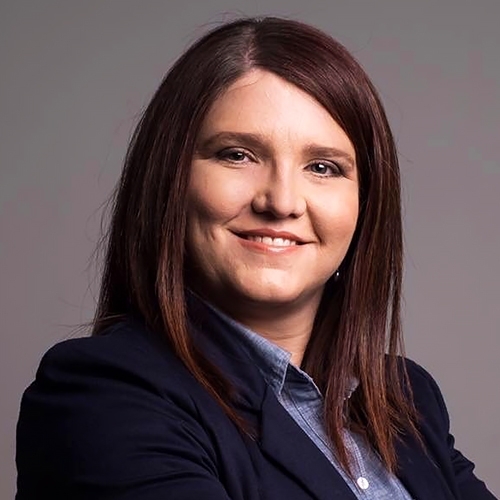

Mari is currently a clinical academic working at Evelina London Children's Hospital in the UK. She is a Clinical Specialist Speech Language Therapist with various international peer reviewed articles on neonatal feeding assessment building on the body of research presented in her PhD. She has presented at various international conferences in the USA, Africa and Europe. Her experience entails paediatric dysphagia in the acute setting with specialization in critical care and neonatal care. In her previous position as an associate professor at a university in South Africa she invested in student clinician training in the NICU setting and access to evidence based treatment for feeding disorders in infancy. Her current research interest is in mobile health application development for the Neonatal Feeding Assessment Scale for international access to a validated neonatal feeding assessment tool to identify oropharyngeal dysphagia in neonates and young infants. In addition her second tier research path is looking at the role of the speech language therapist in PICU. To support the wider clinical and scientific community she is a member of the European Society for Swallowing Disorders as well as an international affiliate member of the Royal College of Speech Language Therapists.
A dearth of validated neonatal feeding assessment instruments are available in an era where medical teams are challenged to demonstrate the evidence base of the services that are provided to neonates. The Neonatal Feeding Assessment Scale (NFAS) was developed to identify oropharyngeal dysphagia with identification of subsequent airway invasion during feeding in neonates. This presentation will take the delegates on a journey through the landscape of evidence, the research process for developing the NFAS and how the NFAS can be used in everyday practice in the NICU to support better feeding outcomes for neonates within their family context.

View Details / Enroll
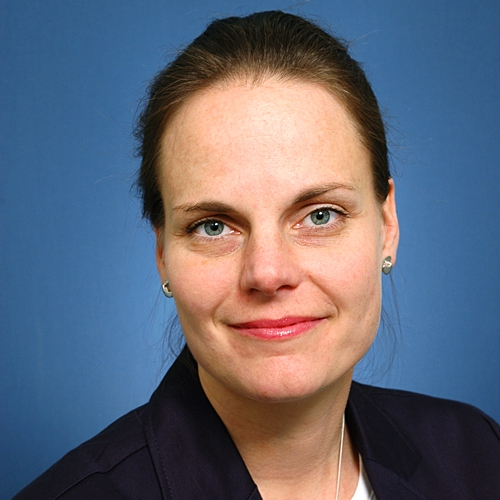

Anna Axelin’s academic career has included conducting quantitative and qualitative research on maternity and neonatal care in multidisciplinary and international research groups. In the Academic year 2011-2012, she joined the faculty of Department of Family Health Care Nursing in University of California San Francisco for her post-doctoral research. Since 2018, she was appointed as an associated researcher in the Department of International Maternal and Child Health at University of Uppsala in Sweden. In addition to the academic career, she has ten-year working experience as a NICU nurse.
She is leading the Health in Early Life and Parenthood (HELP) research group which aims to promote health and welfare in the early stages of life. Her special research interest is how to keep parents and sick newborns together throughout the infant hospital stay and strengthen their relationship already during pregnancy. Anna Axelin’s other research interests include pain and sleep in neonates, and the implementation of evidence-based practice in maternity and neonatal care with the help information technology.
Infants should not be separated from their parents. Parent-infant closeness is vital for the development of parent-infant relationship and consequently for parental well-being and optimal infant development. However, every year, due to medical care or hospital routines detrimental separation affects millions of infants. This presentation explores parents’ and staff’s perceptions of infant-parent closeness and separation in maternity care, delivery ward and neonatal intensive care environment. Based on these experiences, barriers (e.g. care routines and resources) and facilitators (e.g. patient centered communication skills, parent autonomy, single family rooms and couplet care) for closeness will be examined and potential strategies to facilitate parent-infant closeness in neonatal care are discussed.

View Details / Enroll
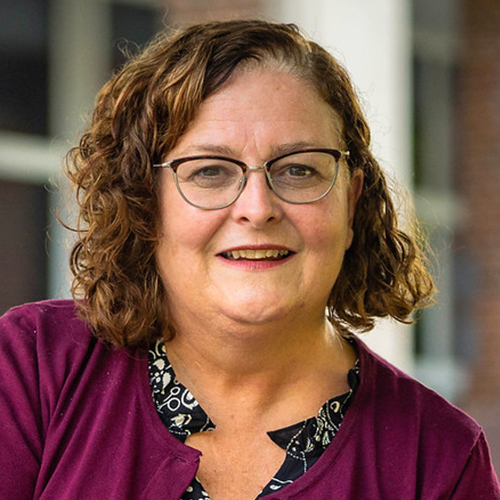

Madge E. Buus-Frank DNP, APRN-BC, FAAN is a nurse practitioner, healthcare improvement scientists and scholar who has been actively engaged in both providing and improving healthcare for nearly 4 decades. Dr. Buus-Frank joined Dartmouth Hitchcock Medical Center in 1990 as one of the first acute care nurse practitioners in the Intensive Care Nursery where she played a pivotal role in building a team of NNPs to serve the Intensive Care Nursery in Lebanon, Nashua, and Manchester. Madge continues to serve as a clinical faculty member in the Department of Pediatrics at the Geisel School of Medicine at Dartmouth and remains invigorated by her clinical practice at the Children’s Hospital at Dartmouth (CHaD) where she has practiced for 30+ years.
Dr. Buus-Frank has been an early innovator on the front lines of developing and testing Learning Health Systems focused on coproducing care with patients and families. as well as improving education and research along the way. In 2019 Dr. Buus-Frank joined The Dartmouth Institute as a Senior Scientist. Her implementation science work currently focuses on a partnership between Dartmouth Hitchcock Health and The Dartmouth Institute, to deliver on the DHH strategic plan, called “The Promise.” She is a co-primary investigator leading a team that is testing the impact of a Learning Health System approach to accelerate co-production of care, to improve the experience of care for our patients and our people and our system. The LHS testing is currently underway in the oncology setting and we will be using whole system measures to evaluate the impact of the Learning health system on patient and family outcomes, cost and value, and research, scholarship and education. Additionally Dr. Buus-Frank serves on a TDI team supporting the Crohn’s & Colitis Foundation’s growing quality improvement collaborative (Qorus) serving as a ead curriculum consultant.
Dr. Buus-Frank is the immediate past Executive Vice President of the Vermont Oxford Network (VON), one of the world’s largest healthcare data and improvement networks in the world. At VON she collaborated with international faculty to conceptualize, design and executed large-scale multi-center quality improvement collaboratives, and massive on-line courses (MOOCs) , bringing >700 hospitals, states and health systems together to learn, share, measure and improve the quality, safety and value of care. Additionally, Dr. Buus-Frank championed and led the development of partnerships with state perinatal quality improvement collaboratives where she built both the common will and capacity to conduct audits and embrace e-based educational implementation packages allowing VON to scale the learning from center level improvement to achieve population-wide results using robust on-line educational technology and learning programs.
Dr. Buus-Frank was the Founding Editor-in-Chief for Advances in Neonatal Care: The Official Journal of the National Association of Neonatal Nurses, a peer-reviewed publication dedicated to advancing the art and science of neonatal care, serving for 5 years in this capacity. She was honored by NANN with a Lifetime Achievement Award in 2021. She is the author of numerous peer-reviewed publications and has been inducted as a Fellow of the American Academy of Nursing (FAAN) for her pioneering work in the field of neonatal care and improvement science.
Join your colleagues for a whirlwind journey of the past 20 years of neonatal care. Together we will reflect on key lessons from the past, identify opportunities to improve care in the present and reimagine how we might provide care to create a preferred future that fosters better health and outcomes for every baby, every time, and everywhere.


Dr. Kelly McGlothen-Bell is an Assistant Professor at UT Health San Antonio, School of Nursing. As a nurse scientist, Dr. McGlothen-Bell is dedicated to understanding and resolving perinatal-infant health disparities in underrepresented groups, particularly among mother-infant dyads impacted by substance use disorders and preterm births. Dr. McGlothen-Bell uses interdisciplinary research, bio-behavioral methodologies, and community-engaged strategies to define and explore health priorities that can be remedied through culturally appropriate and sustainable health solutions. Her program of science focuses on understanding the relationship between infant feeding behaviors and readiness in high-risk infants and attunement between the primary caregiver and child during infancy and toddlerhood. The culmination of these findings contributes to the development of evidence-based interventions geared toward improving parental engagement and pediatric feeding success in marginalized populations. Dr. McGlothen-Bell has published numerous peer-reviewed articles related to developmental strategies for high-risk infants. She has also presented her work at conferences nationally and internationally. Dr. McGlothen-Bell has received numerous awards to include the 2019 National Association of Neonatal Nurses (NANN) Mentee/Mentor Grant Award. She was also selected as a 2019-2020 Academy Jonas Nurse Policy Scholar.
Topic: Feeding Behaviors in the Opioid Exposed Infant - [View Abstract]
As national rates of opioid use disorder continue to rise, the resulting impact on pregnant and parenting women and their children is immense. Severity of the central nervous system and gastrointestinal irritability in infants following prenatal opioid exposure, can affect their feeding behaviors and subsequently the caregiver-infant relationship. Feeding is a regulatory process that is difficult to characterize in prenatally opioid-exposed infants. As a result, caregivers, most often the mother, may struggle with feeding their infants. The complexity of an opioid use disorder for the mother and the subsequent opioid withdrawal of the infant may impede a mother’s ability to engage her irritable or sleepy baby.
Despite the known importance of feeding as a growth-fostering process, the evidence is lacking to guide recommendations for feeding management in this at-risk population. Evidence-based observational tools specific to the target population are warranted. Furthermore, feeding interactions between opioid- exposed infants and their caregivers need appropriate assessment and intervention to not only assist with the infant’s regulation and development of feeding skills, but also to support a nurturing feeding relationship. This presentation will shed new light on this important issue in infant feeding and highlight emerging research in the area.

Feeding Difficulties: A Look at High Risk Populations

Amber Valentine is a Speech-Language Pathologist who graduated from the University of Kentucky with her MS in Communication Disorders. She is a Board Certified Specialist in Swallowing and Swallowing Disorders and an International Board Certified Lactation Consultant. She worked for Baptist Health Systems, Inc for 8 years before moving to Florida where she worked for Wolfsons Children’s Hospital and Mayo Florida. She is now back in Kentucky working for Baptist Health Lexington. She has experience in adults and pediatrics with feeding and swallowing difficulties including: bedside swallow evaluations, Modified Barium Swallow studies, FEES, and pediatric feeding evaluations including NICU. She has provided guest lectures for the University of Kentucky and the University of Louisville on feeding and swallowing topics. She has presented at the hospital level, local, state, national, and international levels on pediatric feeding/swallowing and breastfeeding.
Lillian Scott is a speech-language pathologist and certified lactation counselor employed by Baptist Health Lexington in Lexington, Kentucky. She received master’s degree in Speech-Language Pathology from Gallaudet University. She received dual bachelor degrees in Communication Sciences and Disorders and Special Education from the University of Kentucky. She has worked with pediatrics and adults in the areas of speech, language, and swallowing. She has NICU, Mother/baby, and outpatient clinical experience working with feeding dyads of breast and bottle feeding infants. In the area of adults and pediatrics, she has experience with clinical swallowing evaluations and Modified Barium Swallow Studies. She has experience with adult Fiberoptic Endoscopic Evaluations of swallowing (FEES). Her interest is in successful feeding by mouth for infants with complex medical histories and promoting breastfeeding in cultures that are not likely to receive the supports for feeding difficulties due to knowledge, costs, and/or access.
Feeding is the most complex task of infancy, even in term babies with no complications. There are many diagnoses, conditions, syndromes, and co-morbidities that can impact feeding in neonates and infants. This talk will briefly highlight many of those, but we will focus on three specific populations of interest –Neonatal Abstinence Syndrome, Infants of Diabetic Mothers, and Downs Syndrome. We will discuss the specific implications these conditions can have on feeding, why these infants may have difficulty, and the classic symptoms one could expect to see. The differences between delayed and disordered feeding will also be addressed. Strategies and adaptions for breast feeding will be discussed. Positioning and external strategies will be explained. Case studies will be shared at the end of the presentation.

View Details / Enroll
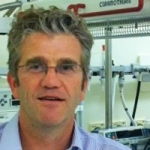
Feeding Preterm Babies after Hospital Discharge: Breast-milk, Fortifier, Supplements and Complementary Foods

Dr Embleton has worked in neonatal medicine for the past 25 years, completing clinical training and a research doctorate in neonatal nutrition in the UK, and a neonatal fellowship in Vancouver, Canada. He has worked as a Consultant Neonatal Pediatrician in Newcastle, UK since 2002, one of the largest UK neonatal units, caring for sick preterm and term born neonates. He leads a broad portfolio of research focused on nutrition and gut health in preterm infants. Areas of work include determining patterns of early gut microbial colonization, and how these may predict the development of necrotizing enterocolitis (NEC) and sepsis. He is a project team member of large neonatal feeding trials recruiting >5000 infants in the UK, as well as coordinating mechanistic studies using microbiomic and metabolomic analyses. He chairs the multi-disciplinary UK Neonatal Nutrition Network (N3) and is a member of the Committee of Nutrition for ESPGHAN.
Topic: Probiotics in Preterm Infants - [View Abstract]
Survival in preterm infants has increased over the last few years, and this has been accompanied by an increasing focus on the importance of nutrition and the effects of preterm birth on later outcomes. Providing nutrition to sick preterm infants in the NICU is complex, and almost all preterm infants are discharged with growth outcomes (weight and length) considerably below their birth centiles. This is important because data show an association between poorer growth and nutritional status in the NICU, and worse longterm neurodevelopmental outcomes. Whilst greater efforts are required to improve nutritional status prior to discharge, the post-discharge setting represents a time period when brain growth is also rapid, and where the potential exists to improve outcome through nutritional interventions. However, the potential benefits of improved brain outcomes need to be considered alongside the possibility of metablic harm induced by excessively rapid growth which may increase risks of obesity and later chronic disease. This talk will consider the continued importance of breast milk after discharge, the potential role of fortifiers and supplements in meeting nutrient requirements, and issues around the timing of introduction of complementary foods.

View Details / Enroll
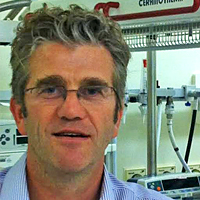
View Details / Enroll




